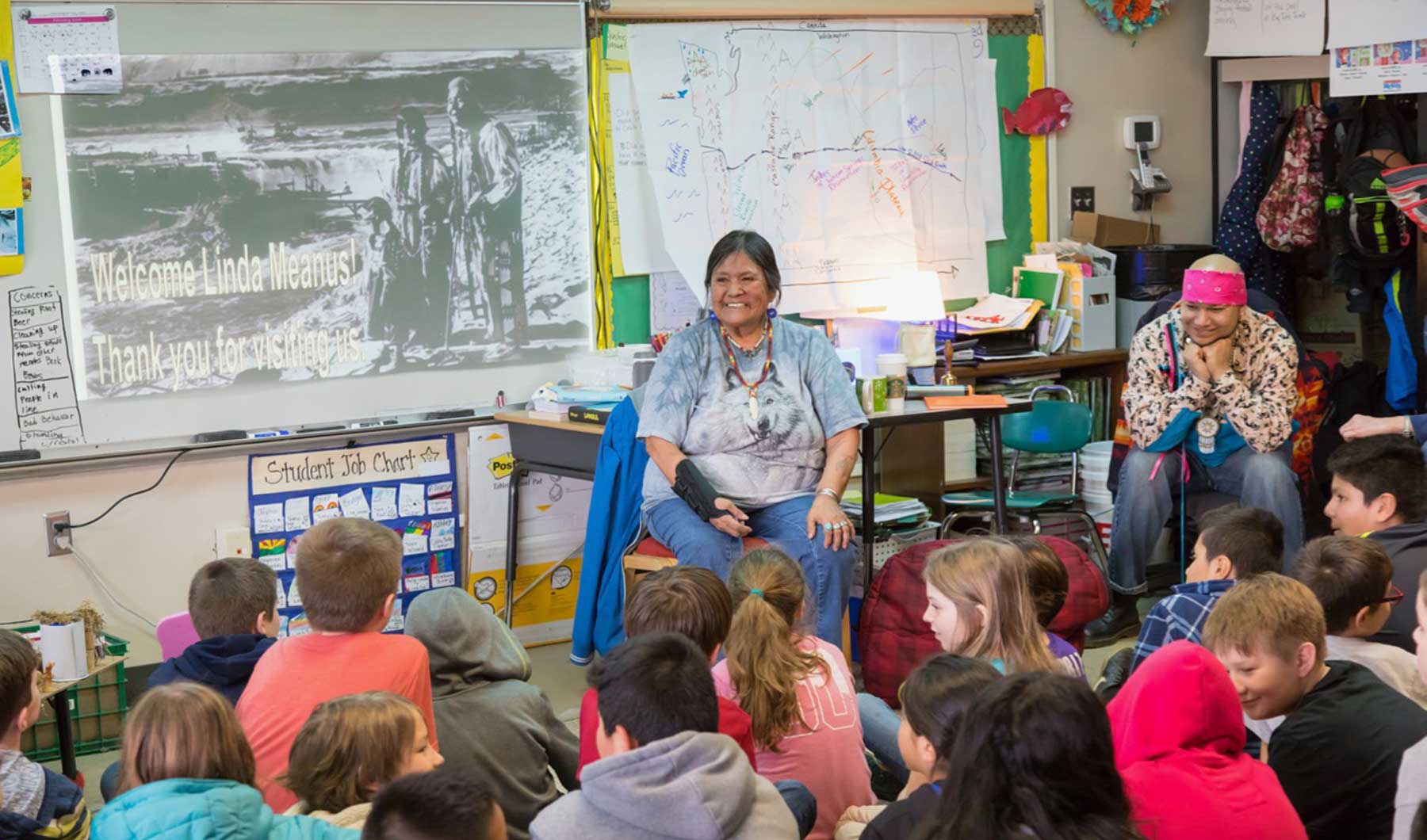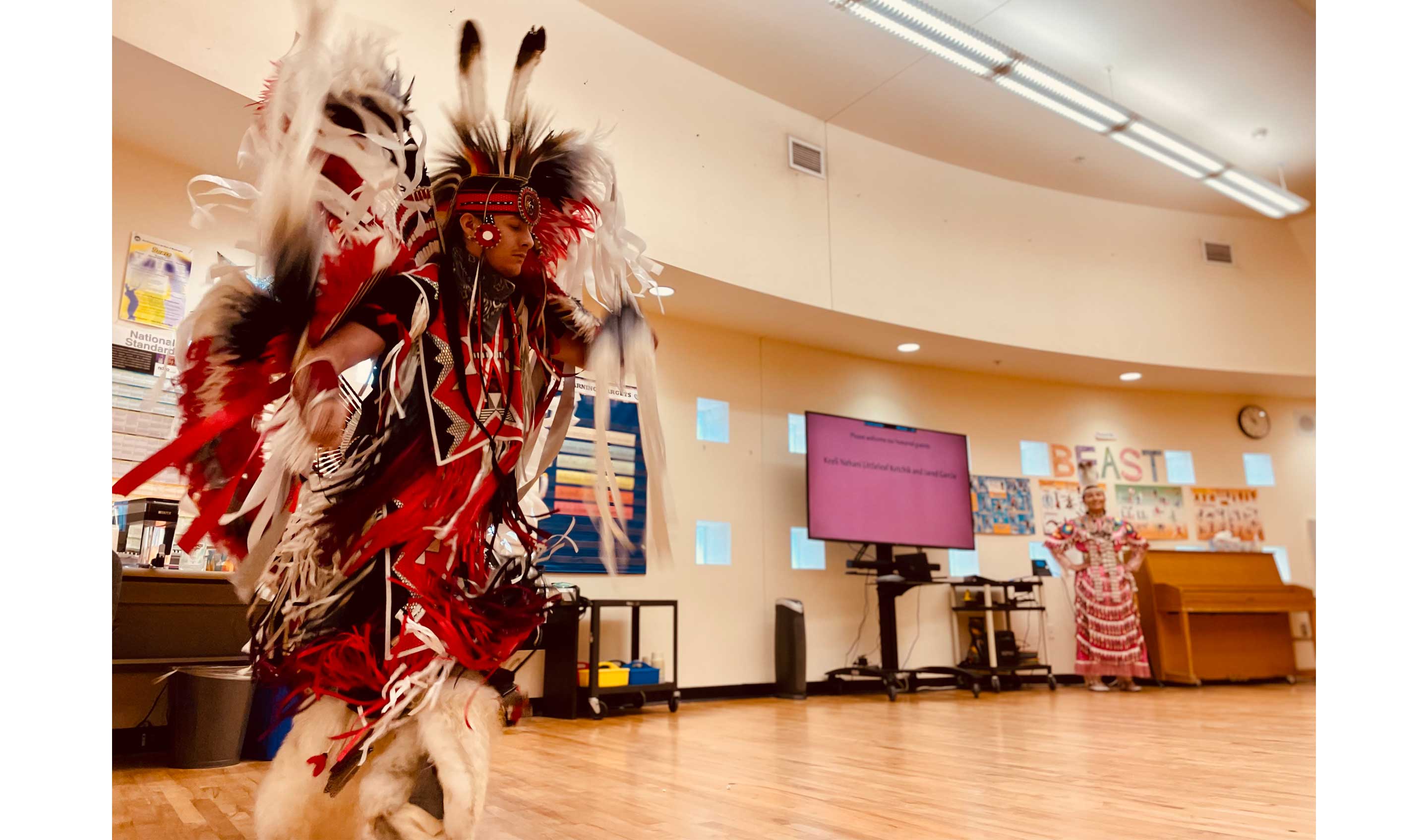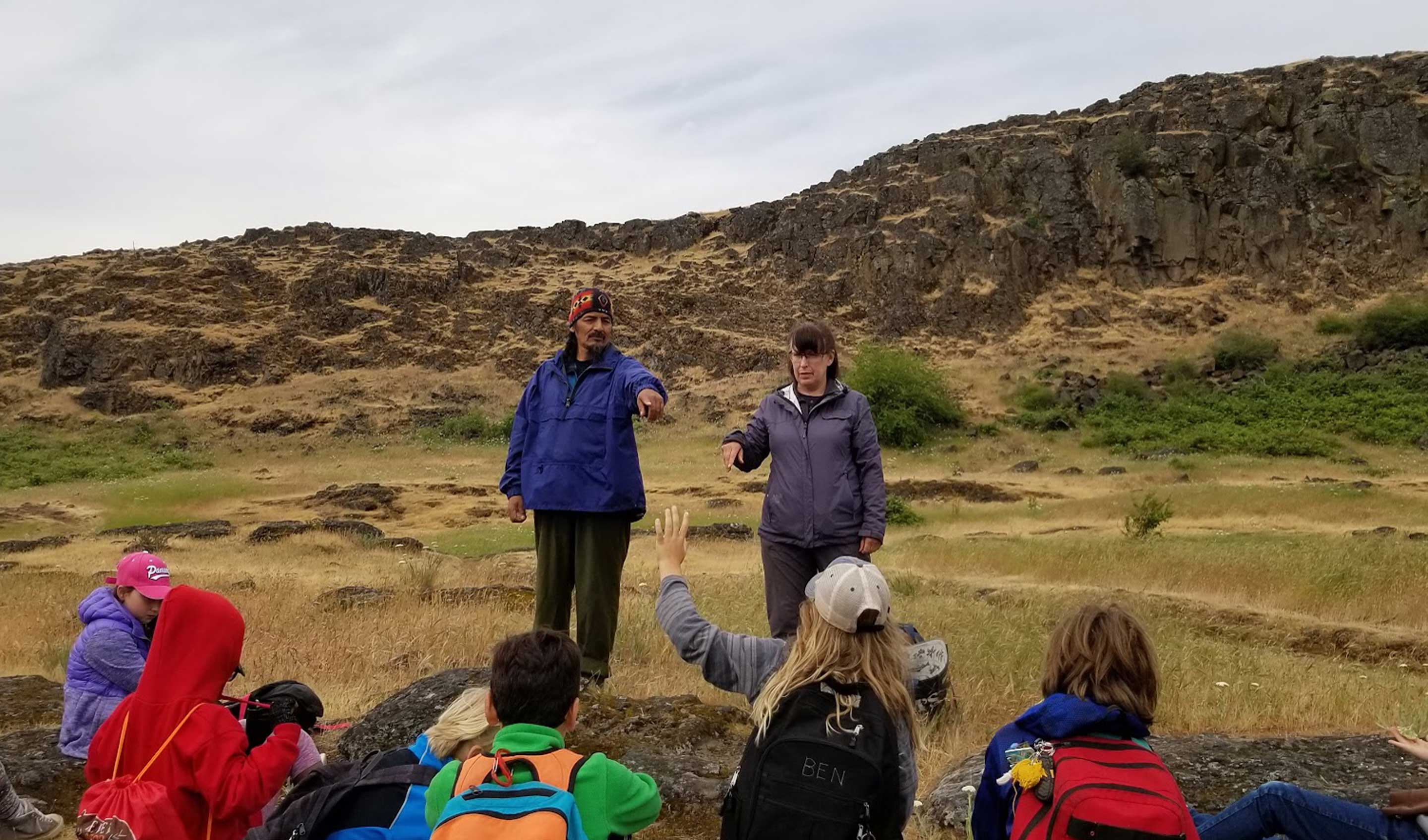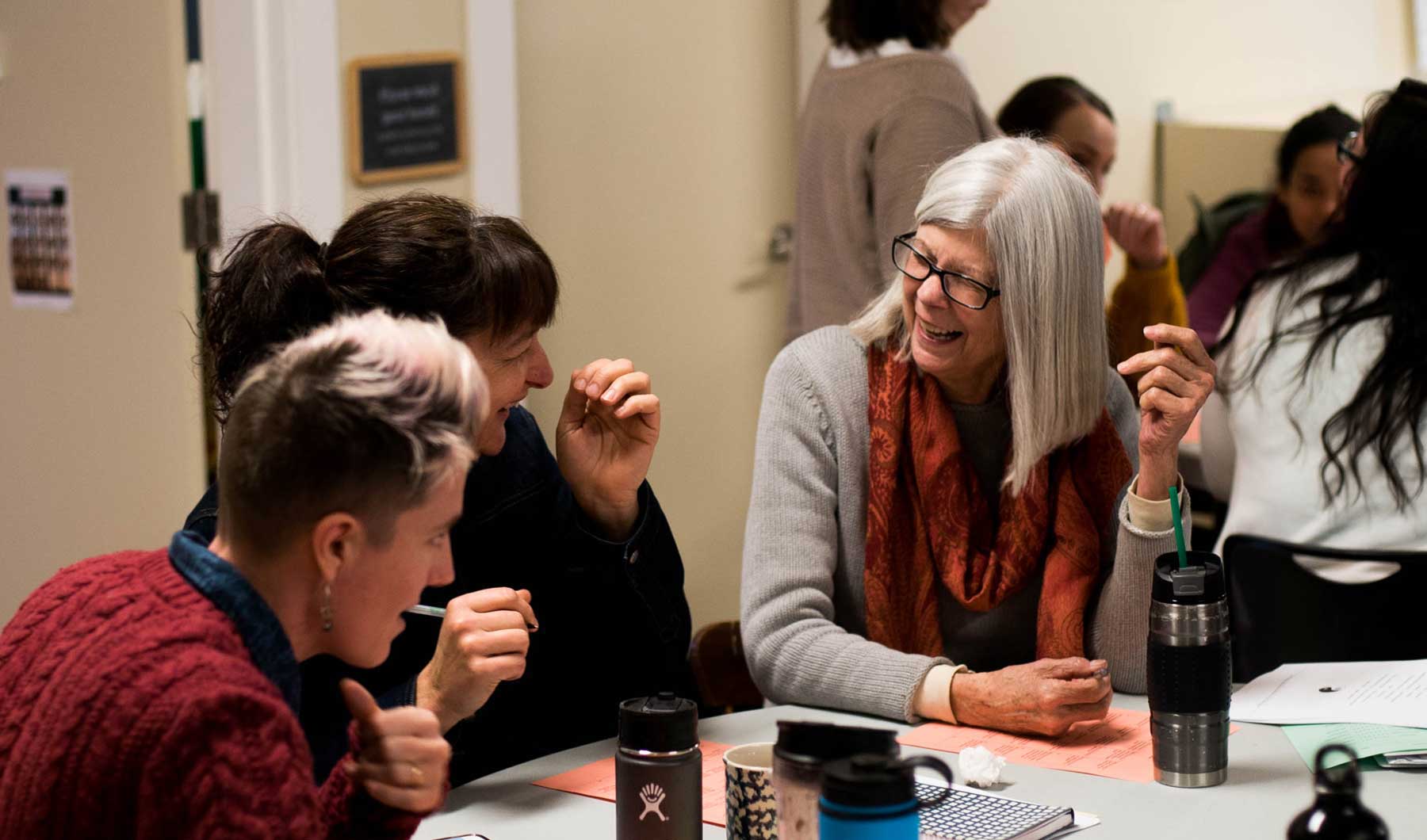In the Schools
Program Overview
Confluence Education Programs work together to plant seeds of knowledge for both students and educators, as they experience learning through a broader and more inclusive approach to history and contemporary Indigenous existence.
Confluence in the Classroom and Outdoors connects students and educators with Native Educators and Artists who work through Indigenous Knowledge Systems to provide opportunities to learn and grow connections to Native Peoples, places, and systems through Native voices.
Confluence Professional Development Cohorts provide workshop opportunities for educators to align with Indigenous curriculum, learn through Native voices, and strengthen understanding and skills alongside their peers.
The Confluence Learning Community works with educators who want to deepen their connections and relationships with Indigenous Knowledge Systems. This community will grow and share opportunities to cultivate learning alongside Native voices through workshops, peer sharing and mentorship, as well as ongoing growth opportunities with Native Educators and Artists.
Individual Programs
In the Schools
“Confluence in the Classroom supports the vision of Native populations on the Columbia River and tributaries—the life experiences, a universality about those experiences and visions for the future of our shared River.”
– Patricia Whitefoot (Yakama)
For 15 years, Confluence in the Classroom has connected students to place through art and education by introducing them to Native Artists and Culture bearers from the Cowlitz Indian Tribe, Chinook Nation, Confederated Tribes of Grand Ronde, Confederated Tribes of Warm Springs, Yakama Nation, Confederated Tribes of the Umatilla Indian Reservation, and Nez Perce Tribe. Together, Native Educators, students, and teachers embark on a learning journey. Field trips to sites with significant environmental and cultural stories can be coordinated as an extension of these journeys.
Confluence in the Classroom and Outdoors
Confluence in the Classroom and Outdoors provides an opportunity for students to connect with Native Educators and Artists to expand their learning through Indigenous voices. Educators will work closely with the Confluence in the Classroom Education Manager to build connections with K – 12 students, in person or online.
Programming may include opportunities for students and teachers to connect with Native Educators and Native Artists as they align with Tribal History/Share History (Oregon) or Since Time Immemorial Curriculum (Washington State) curriculum. During classroom visits students and educators learn from Native Educators and Native Artists, who work through Indigenous Knowledge Systems to provide opportunities to learn and cultivate connections to Indigenous Peoples, places, and systems through Indigenous voices.
Confluence is committed to align with school and district policy and adhere to local and state Covid mitigation policies. Classroom engagement can be through individual class or full grade level programming, full school or grade level Culture Share Assemblies, or full school or grade level residencies.
When you submit your inquiry form, please share details including curriculum or lessons you are using and any hopes you have for the engagement opportunity.
You can submit the inquiry form here.
Field Trips
Confluence facilitates field trips to culturally significant places, including Confluence sites, that provide an opportunity for students to connect further with Indigenous Peoples and Land. Everywhere you are, you’re on Indigenous Land.
Field trip sites may include the Sandy River Delta and the Confluence Bird Blid, and the Confluence Land Bridge, as well as non Confluence sites such as She Who Watches at Columbia Hills State Park. Confluence serves classrooms and schools of all kinds, including rural schools, ones with high rates of students who qualify for free and reduced lunch, and communities with populations of Tribal students.
Confluence Professional Development
Confluence Professional Development works with educators as they grow their connections Indigenous Knowledge Systems. Through a cohort model (online or in person) participants will work through concepts that encourage connection to their own Culture and enhance relationship building with people of other Cultures. Participants will navigate lessons from their State’s Native American/Alaska Native curriculum both individually and in groups, to develop a deeper connection to the curriculum.
Cohorts will be offered throughout the year through 2 models:
Aligning with Tribal History/Shared History (Oregon)
Aligning with Since Time Immemorial (Washington)
Each cohort will be completed in three two hour sessions:
We are excited to share our new Field Study Professional Development cohorts. These cohorts will offer a fourth session in addition to our Aligning with Tribal History/Shared History (Oregon), Aligning with Since Time Immemorial (Washington) models. We will offer one Field Study Cohort in both Fall and Spring each year for each model.
Participants will start their Field Study Professional Development cohort online with virtual Confluence professional development sessions and the final session will be an in person field trip session that will help educators connect deeper with Native Educators and/or Native Artists in a Culturally significant location. During the field study cohort you will connect with the STEAM curriculum from either Tribal History/Shared History (Oregon) or Since Time Immemorial (Washington) and experience connection and learning through Traditional Ecological Knowledge (TEK) and place based education.
Professional Development schedules and registration will be posted here soon.
Confluence Learning Community
The Confluence Learning Community will develop into a network of teachers, administrators, school board members, and advocates who have connected with Confluence through school programming or professional development workshops. These educators will have opportunities to welcome Indigenous voices into their classrooms and connect their students and families with the history, living cultures, and ecology of our region through Tribal perspectives, and align with Oregon’s Tribal History/Shared History.
We will welcome educators who want to take their connection and relationships with Indigenous Knowledge Systems further. This community will grow and share opportunities to cultivate learning alongside Indigenous voices through workshops, peer sharing and mentorship, as well as ongoing growth opportunities with Native Educators and Artists.
Details about participating in the Confluence Learning Community will be posted here soon.
For more information about Education Programs, please contact Education Program Manager Heather Gurko at heather@confluenceproject.org




